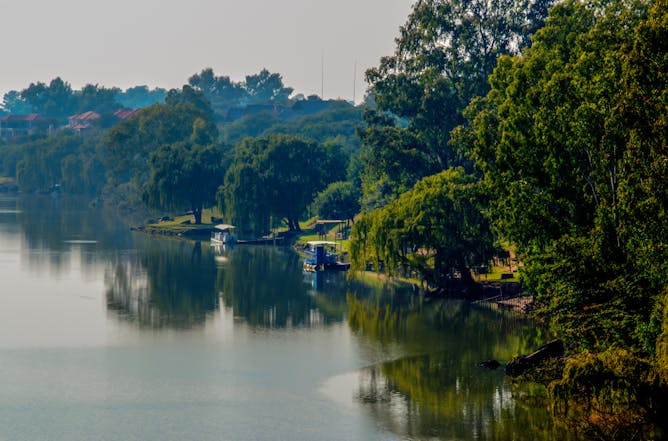|
Plastics and microplastics are damaging marine environments. A lot is known about their presence in the sea, but there’s less knowledge about the problem in freshwater, particularly in developing countries. In a first study of its kind, Henk Bouwman looked at rivers in South Africa’s economic heartland. His findings were disturbing.
Some countries are already taking action to manage rising sea levels. Most African countries, however, aren’t. Sally Brown explains why this is a major omission: the continent’s coastlines increasingly face the risk of flooding, threatening millions of people.
|

Surface water from the Vaal River is highly polluted with fragments of microplastics.
Flickr/Paul Saad
Henk Bouwman, North-West University
South Africa needs to strengthen its response to plastic pollution.
|

One African city trying to manage rising sea levels is Cape Town.
Shutterstock/Denis Mironov
Sally Brown, University of Southampton
Without action about 50 African countries and surrounding islands will be affected by rising sea levels.
|
Environment + Energy
|
-
Oluwole Olutola, University of Johannesburg
Nuclear energy should be a possibility for African countries.
|
|
Health + Medicine
|
-
Lenore Manderson, University of the Witwatersrand
Scientists need to continue working across disciplines to find ways to disrupt disease transmission in the context of climate change.
|
|
From our international editions
|
-
Simon Chadwick, University of Salford; Sarah Zipp, University of Stirling
Nike has reaped a whirlwind in their latest ad campaign featuring Colin Kaepernick, but it's the inevitable windfall they're likely interested in.
-
Stuart Worboys, James Cook University
In a few idyllic parts of Queensland grows the idiot fruit, a tall tree with intricate flowers and some of the largest seeds in Australia.
|
|